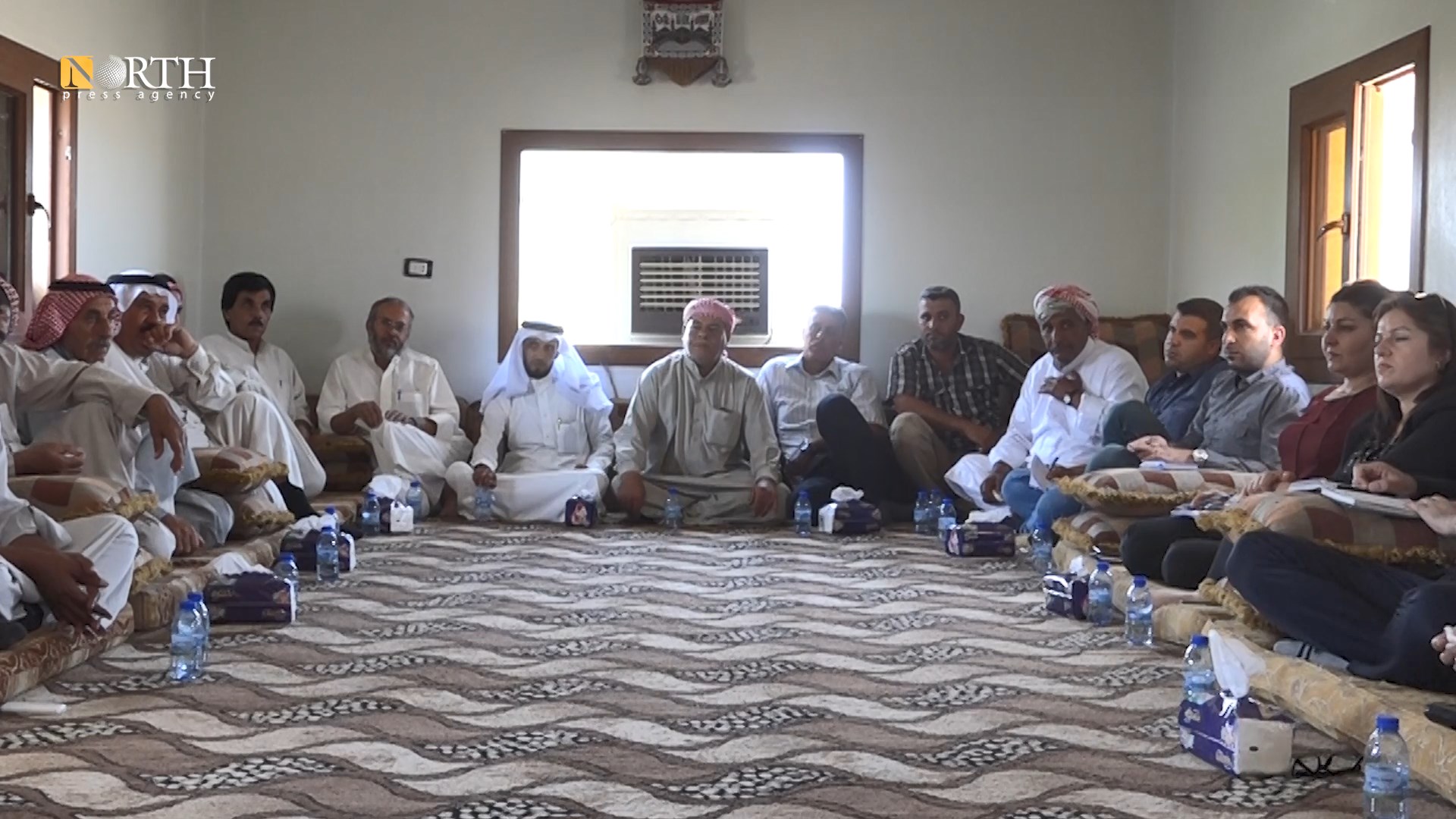Autonomous Administration discusses service issues with people in Syria’s Kobani
KOBANI, Syria (North press) – On Saturday, officials of the Autonomous Administration of the Euphrates Region, held a meeting with tribal sheikhs and social figures of the town of Sirrin, south of Kobani, north Syria, as part of series of meetings to closely recognize the residents’ social and service demands.
The meeting, which was attended by the tribal notables and figures from Sirrin, and officials of the Euphrates Region, aimed at knowing about the problems of the population of the region, Haj Issa Mudhi, a social figure from Sirrin, told North Press.
“We talked frankly and without red lines,” he said.
The attendees discussed the common problems between the Administration and the residents of the region, on top of which were customs, bread, resolving the detainees issue, unifying the educational curricula, and relief demands in light of farmers’ loss due to the drought that the region witnessed this year, and the support of livestock.
“The Administration positively responded to the citizens’ demands and promised to solve the problems of bread, livestock and relief aid,” Mudhi added.
The main demand of the citizens was to find alternative solutions to provide water for the area in light of the low water level of the Euphrates River, which negatively affected the groundwater.
“We talked about the service and security situation in general, and we saw some response, especially about urgent matters,” said Khalil al-Lafi, member of al-Fad’an tribe.
About 40 notables from the area attended the meeting, which was called by Rasho Ali al-Rasho, member of the notables’ committee in the town, and they talked about their problems.
Muhammad Shahin, the co-chair of the Executive Council of the Euphrates Region, said, the meeting comes within the framework of a series of meetings initiated by the Autonomous Administration in the region.
He added that these meetings will continue in all areas of the Euphrates Region to listen to the residents’ viewpoints, suggestions, demands and complaints about service and public matters.
He pointed out that the participants’ proposals “contribute to the development of departments and institutions and the provision of services in a better way, in addition to the participation of the population to be part of decision-making at all political, service and security levels.”

